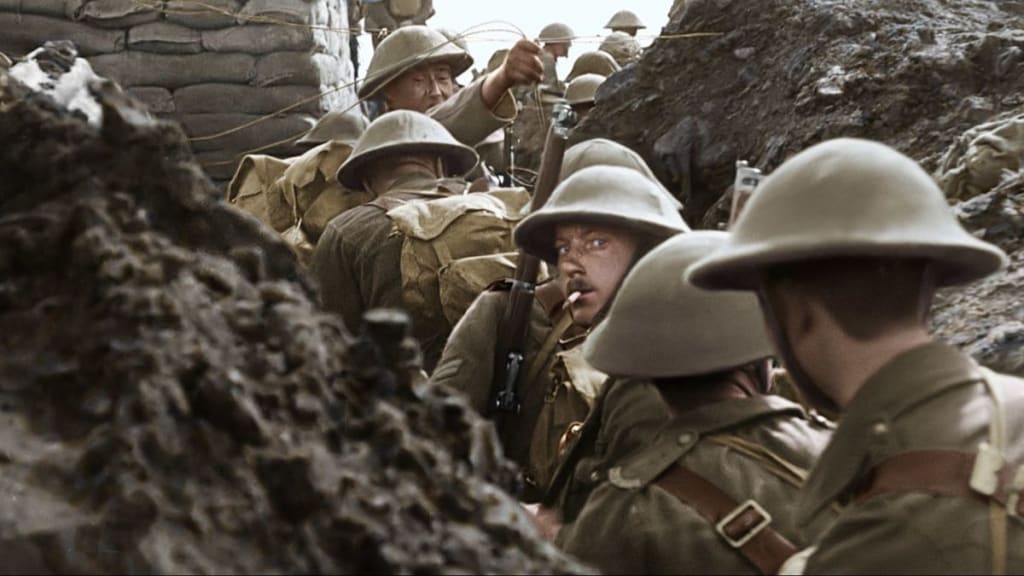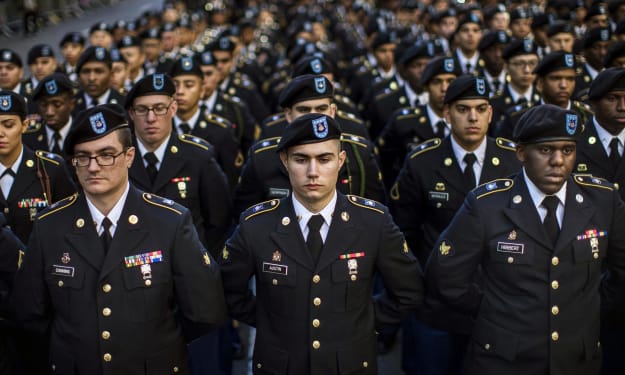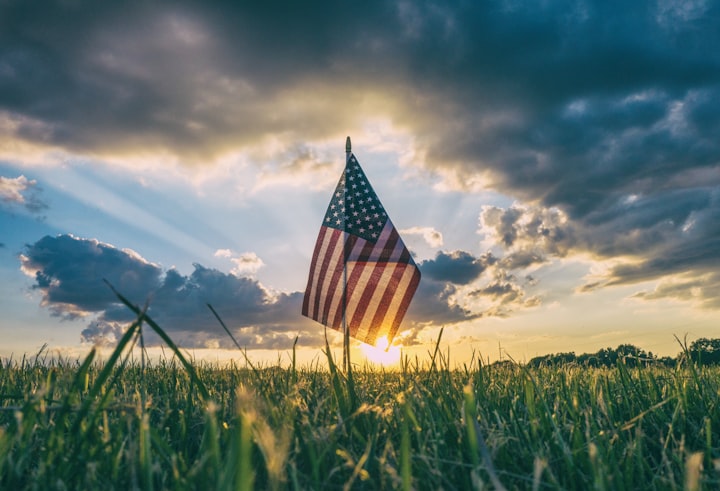10 Books About WWI That Will Make You Think
From the trenches to the skies, books about WWI will change your perspective on one of the largest conflicts in our history.

In today's society, people are too often ignorant of certain historical events of great significance. While pop culture has heavily analyzed World War II—among other wars in American history (even that of today's ongoing war in the Middle East with many must read books about the war in Afghanistan)—in film, literature, and television, they have paid considerably less tribute to World War I. Though it was an incredibly important event in its own right, many people simply see it as the prequel to World War II. Those same people likely are unaware that, in its time, World War I was known as the Great War, or that the spread of the so called "Spanish Flu," worsened by the war, was one of the deadliest epidemics in recorded history (far deadlier than the war itself). However, if you wish to learn more about this critical event in world history, there are still many books about WWI that cover every aspect of the war from trench warfare, to dogfights in the sky, and much more.
One of the great pieces of 20th century literature in its own respect, Erich Maria Remarque's All Quiet on the Western Front is easily among the most well-known pieces of literature concerning the first World War. Though much of American and European society at large would not come to fully understand the extent of their struggles until very recent times, All Quiet on the Western Front shows how, in addition to the very tangible physical wounds of war, young men are changed in severe and unseen ways that can transform their personality and their very nature. For the first time, World War I caused so many people throughout the globe to share experiences of great trauma in numbers that would come to deeply impact society as a whole.
Few historical literary figures are more inextricably tied to the history and events of World War I as Ernest Hemingway. Known in his career for often writing about war in his novels, this novel is one of the consummate novels set in the battlegrounds of World War I. Like the work of Erich Maria Remarque, A Farewell to Arms is one of the pieces of American literature most synonymous with the Great War and the culture around it. The novel follows the romance between an American ambulance driver and an English nurse who are stationed on the Italian front. Widely regarded as one of the greatest writers of the 20th century, Hemingway's perspective from his own time serving in the war fits perfectly with his brilliant prose and insight. A Farewell to Arms is a must read book written by a veteran himself.
Despite the pivotal role it played in history, the first World War is not as widely taught or discussed as World War II. With the complex nature of its overall purpose, it is difficult to understand the full story of its origins in retrospect. Guns of August by Barbara Wertheim Tuchman is a critically acclaimed historical account of the Great War. Alternatively published as August 1914, the book focuses mostly on the first month of the war, going into great detail and analysis. The account starts by establishing the many ambiguous events and factors that all converged to spur conflicts such as the assassination of the archduke, Germany's militarization following said conflict, and as far as the first battle of Marnes in early September of 1914. The Guns of August helps to decode the origins of one of the most tragic and confounding events in human history.
Though it concluded over a century ago, World War I remains one of the most deadly human conflicts of all time. Involving so many countries and people across Europe and the world, the Great War was a conflict with many side skirmishes and other atrocities that occurred simultaneously to the main struggle. In the context of the emerging war, these many existing local and regional disputes were inevitably intensified as alliances were established and sides were chosen in the conflict. In A World Undone, G.J. Meyer chronicles the war in great detail, helping to convey the severity and devastation of World War I, as well as the full extent of its complexity. By establishing and discussing the smaller conflicts that were absorbed by the war, it is easier to comprehend the length and impact of the war.
Though most people are aware of the psychological struggles that combat veterans face after war, there was a time when such effects were not talked about. Long seen as a sign of weakness, many veterans of World War I and later conflicts chose to suppress their trauma and hide it from the world. Though their plight may not have been well understood at the time, some who served in this brutal conflict recounted their experiences and emotions in the form of poetry. In fact, few modern conflicts are more associated with poetry as a medium as World War I. One of the great works to muse on the conflict, Good-Bye to All That by Robert Graves considers the unseen impact that the war had on soldiers. Graves notes how the war forever changed the psychology and outlook of all involved, jading some and deeply scarring more.
While little attention is given to World War I compared to many other major American conflicts, even less attention is paid to the growing industrial strength of the United States at the time, that which allowed us to build the tools to win the day. While kids and adults alike can safely appreciate the luminous sheen of glow in the dark accessories, there was a time when it wasn't so safe or clean to produce this effect. During the war, gauges, clocks, and other instruments were often painted with a glow in the dark finish so that they could be located without power in the ships. These clocks and other instruments were painted by women employed in a factory where they covered them in a paint made from radium. Though this was not known at the time, radium is highly radioactive and toxic to the body, a truth that became apparent when many of the women workers began to experience strange and debilitating health problems. This book tells the story of these brave women who fought a brilliant legal battle to make sure that others would not suffer a similar fate at the hands of this industry.
Laura Spinney's Pale Rider covers the most improbably forgotten tragedy in human memory. Though it was an incredibly significant moment in world history, almost no one today is even aware that it occurred. If they are, most do not realize the full extent of damage that it did to the world at large. The Spanish Flu coincided with the first World War, owing greatly to its sparse coverage in the history books. Because of the critical importance of showing no weakness in the war, nations who had taken a side dared not report on the full extent of the epidemic. For this reason, the epidemic bore the Spanish Flu name because of the neutral country's extensive coverage of it. Because this event—thought to be the single deadliest epidemic in the recorded history of man—was largely lost to history, it is of the utmost importance to retrieve what remaining records of the event exist.
While contemporary accounts and scholarly histories of World War I are certainly the most important resources when studying the conflict, scholars can learn so much by comparing these accounts to literature and other media about the war that have emerged in the years since. As with many major events in history, our knowledge of World War I was first formed by particular accounts, and our understandings and misunderstandings have evolved and morphed from this same thread of records. In The Great War and Modern Memory, Paul Fussell analyzes the literary culture generated by WWI and how it represented a shift in cultural attitude. Fussell notes that after such a violent and global cataclysm, people around the world were left in shock, and the glorified celebration of war was no longer widely appealing. The Great War and Modern Memory helps to explain how the ubiquitous terror of World War I drastically changed people's taste in literature.
Though it may be cliche, it is too true that history is written by the victors. Understanding history as the written record of events, this means that many traditional histories fail to capture the experience of those who were largely forced to fight on the losing or wrong side of history. While the experience of soldiers in the British, French, American, and other allied forces has been well-documented and portrayed, less attention has been paid to the lives and experiences of the soldiers on the other side of the front. Storm of Steel by Ernst Junger tells the story of Junger's time serving on the western front in the German army during World War I. Junger's memoir tells how he rose through the ranks in the German army, sustaining numerous injuries, as well as receiving many medals and other accolades.
While the origins and driving factors of World War II are pretty easy to comprehend without much analysis, World War I has a far more ambiguous narrative. Most people remember that the war began when Archduke Franz Ferdinand was shot, but some don't understand how this event led to the war. In July 1914: Countdown to War, Sean McMeekin breaks down the events of June and July of 1914, explaining how they led to the eventual war. McMeekin discusses the political and military factors and decisions following the assassination of Ferdinand that converged to create such a widespread conflict. In one of the most truly gripping books about WWI, July 1914 explores the sudden and rapid military buildup, with the expansionist ambitions of the German government at the time of the assassination, as well as other aggravating circumstances of WWI.
About the Creator
Fred Eugene Park
Fred Park is a writer, singer and guitarist with a deep passion for music, sports and history. Fred graduated from Purchase College in 2016 with a BA in history.






Comments
There are no comments for this story
Be the first to respond and start the conversation.